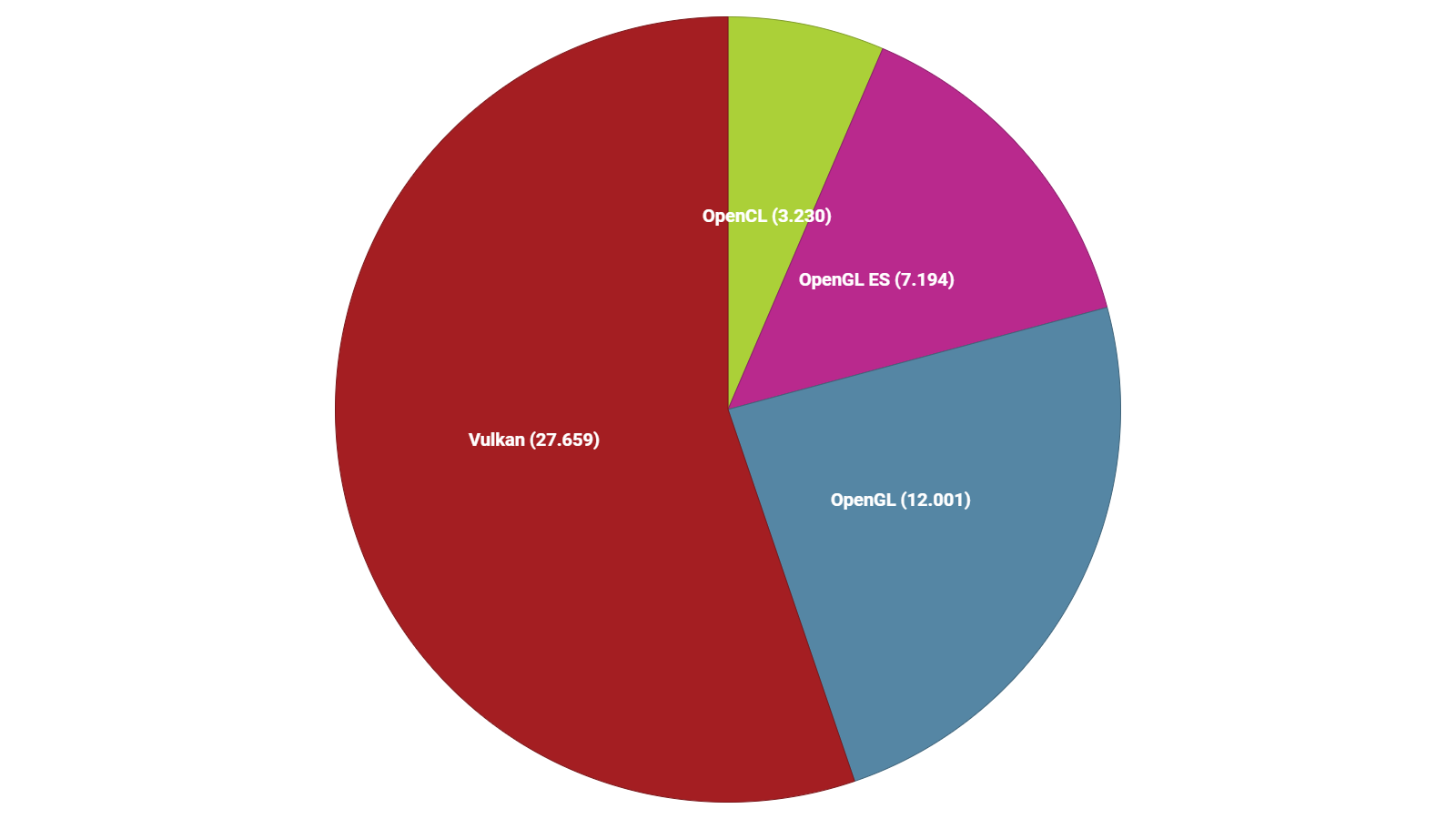50,000 reports (and counting)
When I started the OpenGL online hardware database in 2011 along with a client application written in Delphi (which is pretty niche nowadays), it was meant as a replacement for a defunct database of OpenGL devices made by someone else. 13 years later my community driven GPU databases now also support OpenGL ES, OpenCL and Vulkan. Judging by the numbers and the feedback I get, the databases are widely used by developers that work the open APIs from Khronos. Something that I can easily see when looking at numbers. And one such metric is the number of reports submitted to those databases, which hit 50,000 reports across OpenGL, OpenGL ES, OpenCL an Vulkan recently.
Report distribution
No surprises here. Vulkan is the most popular API of the four, gets the most driver releases, is available on a lot of platforms and has replaced OpenGL and OpenGL in some areas. OpenCL only started recently, so already having more than 3,000 reports isn’t too bad.
Some history
Here is some history with the biggest milestones regarding the GPU databases (excluding the many updates, refactors and front-end changes):
- Aug 2011 - OpenGL database goes live with client application written in Delphi
- Sep 2011 - OpenGL capability viewer now also available for Mac OSX
- Sep 2011 - OpenGL capability viewer now also available for Mac OSX
- Dec 2013 - OpenGL ES Hardware Database Preview
- Feb 2015 - OpenGL capability viewer C++ port released
- Oct 2015 - Introducing gpuinfo.org
- Feb 2016 - Vulkan database launches with Windows, Linux and Android client applications
- Feb 2016 - Vulkan database launches with Windows, Linux and Android client applications
- Oct 2020 - Vulkan capability viewer now also available for Mac OSX
- Feb 2021 - Vulkan capability viewer now also available for iOS
- Jan 2022 - OpenCL database launches with Windows, Linux, Android client applications
Server capacity
By now the databases serves around 2 million pages and api requests per month. A number I would’ve never imagined when starting out with this project. While this is awesome to see, it also means that the server was no longer able to cope with all those request. A few months ago I added in logging for the requests to the Vulkan database and noticed some really bad response times, often resulting in time outs.
I did put in a lot of effort optimizing the database and SQL statements, including updating some stuff at report upload instead of fetching it with every request. This helped to some degree but ultimately the server was at maximum capacity. So the only way to further improve this was to upgrade to better server hardware. So that’s what I did some weeks ago, luckily with no real downtime. Logging at the request times this helped a lot. For some of the most often used pages, request times have been cut in half with far less (if at all) time outs.
Thank you for your contributions
But being a community driven database, this number would’ve never been reached without all those people uploading reports. So thank you to everyone wo uploaded reports!
